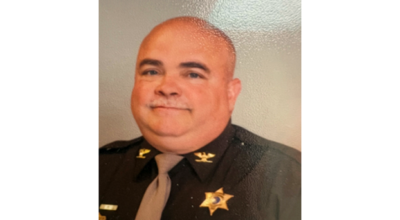CASA an independent voice for kids
Published 7:08 pm Wednesday, June 12, 2013
Cass County CASA (Court-Appointed Special Advocates) serves 52 children with 23 volunteers and a $120,000 annual budget, of which the independent organization raises 60 percent itself.
An average case lasts 24 months. The average time commitment takes 12 to 15 hours per month. Volunteers give 45 eight-hour days to a case with the goal of finding abused and neglected children living in foster care a safe, permanent home as quickly as possible.
More men are needed, five-year Director Jim Ward told Dowagiac Rotary Club June 6 at Elks Lodge 889, as there are just four.
Volunteers include business professionals, a retired judge, teachers, retired teachers, young moms, an emergency medical technician (EMT) and a firefighter.
Judge Susan Dobrich founded Cass County CASA in 1995, with the first volunteer advocates trained in 1997, 20 years after Seattle juvenile Judge David Soukup felt he needed more information about children to make life-altering decisions.
He conceived the idea of citizen volunteers speaking up for the best interests of abused and neglected children.
From that first program grew a network of more than 900 CASA and guardian ad litem program offices recruiting, training and supporting volunteers in 49 states.
Last year, more than 240,000 children were served by CASA/GAL volunteers.
“In our state,” Ward said, “we have 22 programs serving 24 counties, with three in development. I’m on the Michigan CASA board now. Judge Dobrich and I are working to try to get a program implemented in Berrien County.”
Statewide, more than 800 CASA volunteers served more than 1,800 children last year.
“We like to say a CASA is an adjective — not a noun,” said Ward, who spoke as the guest of Rotarian and CASA volunteer advocate Sonja Smith. Volunteers are highly trained and screened and must be court-ordered by the judge.
Volunteers must be 21 years old, possess a high school diploma or GED, have good communication skills and commit to seeing each case through to completion.
“And it’s important that they have a big heart for kids,” Ward said. “Cases generally close for three reasons. The child is reunited with biological parents, adopted or goes into a guardianship or another form of long-term foster care until they age out. A CASA volunteer is a constant in a child’s life. Caseworkers, therapists and foster care homes can change.”
Training consists of an initial 30 hours of in-house training, 10 hours of court observation, 12 hours per year of in-service training, monthly two-hour meetings and optional state and national conferences.
“I’m a facilitator, not a teacher,” said Ward, who spent 30 years with a Fortune 500 company. “We generally have someone from the sheriff’s office come in to talk to us about issues going on in the community, such as methamphetamine and other drugs that lead to a lot of the abuse and neglect in the county. We are a 501(c)(3) non-profit, but the majority of our funding comes from our own fundraisers,” such as the annual live action July 27 at Lowe’s Big Rock Valley in Penn Township.
CASA is not under the United Way umbrella, though programs elsewhere are.
“We’re independent and also don’t report directly to the courts,” Ward said.
Dobrich or her referee, Leigh Feldman, trains volunteers on different kinds of court hearings.
Another resource is Department of Human Services Director Cindy Underwood.







